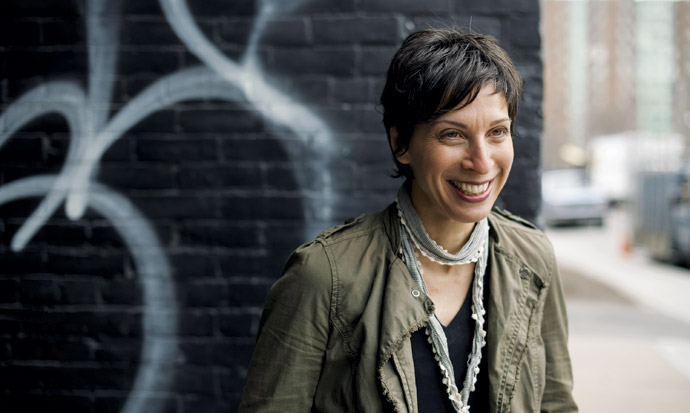
By Lucianna Ciccocioppo / Photography by Tony Fouhse
From the Spring/Summer 2013 issue of Nexus.
It took a global conference in Istanbul, the mystical ancient city straddling two continents, to bring Leilani Farha’s two worlds together: human rights and women’s housing rights. It was 1996, and she was completing her articles at a Geneva-based NGO, the Center for Human Rights and Evictions. Farha was helping to prepare the Center’s participation in parallel NGO events at Habitat II, the UN’s second Conference on Human Settlements, when her colleague fell ill. That meant she was flying solo to Turkey and taking her organization’s message with her.
“I chaired this panel on women’s right to property, and here I made the link to property and housing, where we have established rights.” Energized, she worked her epiphany to the max. “I got to know the main housing organizations in the world and I gained this immediate network of people.”
Equipped with her law and social work degrees from the University of Toronto, and her passion to improve the lives of women around the world fleeing violence, Farha’s advocacy started to gain traction. After working in Geneva, she moved to Melbourne, Australia, where she continued to work on housing issues affecting women in developing countries such as Nigeria, Solomon Islands, and Palestine.
Farha pursued the UN’s first resolution on women’s rights to land, property, housing and equal inheritance, drafting it and honing it with the Mexican government. It was 1998. “It was adopted unanimously and really put this issue on the international legal map.”
She co-authored the Montreal Principles with various women’s groups, including several experts from the United Nations, to solidify the meaning and application of women’s economic, social and cultural rights. “The principles were published in Human Rights Quarterly and put pressure on the UN to adopt legal standards in this area.” It worked.
Changes are happening, but Farha is sure she won’t be out of a job anytime soon. The executive director of the non-profit Canada Without Poverty knows change happens slowly. “I won’t give up trying to address social and economic disadvantage in Canada—until those issues are gone.”
Her longstanding efforts to eliminate barriers to poverty that put women at risk of violence have not gone unnoticed. In the spring, Farah was the first recipient of the Spirit of Barbra Schlifer Award, named after the young law grad who was brutally assaulted and murdered after celebrating her call to the bar in April 1980.
Farha is hopeful, particularly with the next generation. She recalls talking about women’s hockey with her children, and the importance of supporting these leagues, so women and girls can get better training times.
“Do you know what it’s called when women are treated differently?” she asked her children.
“Injustice,” said her 10-year-old daughter.
“Sexism,” said her seven-year-old son.


